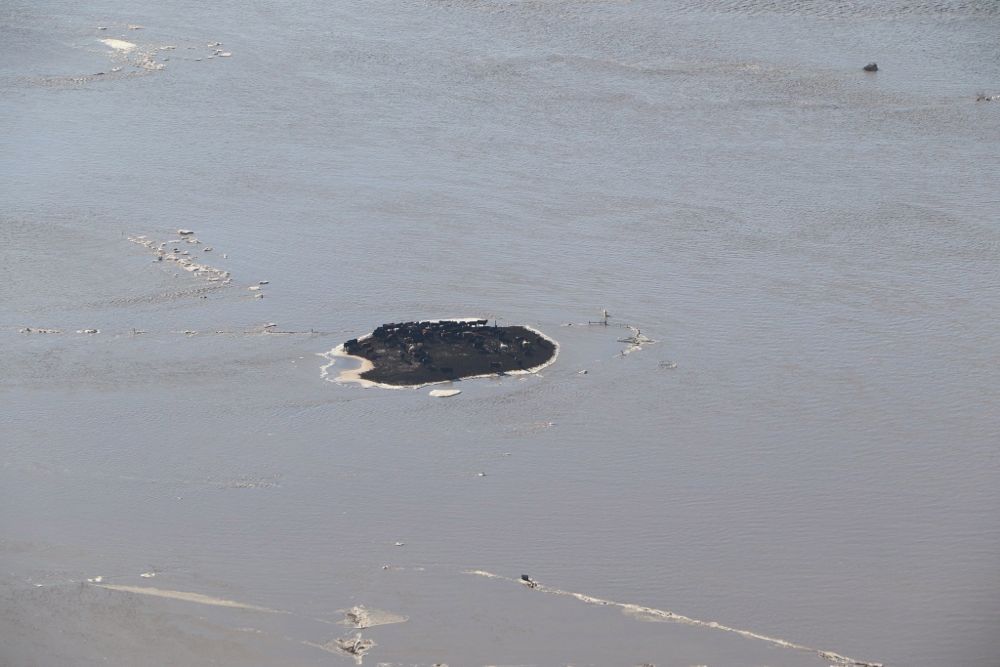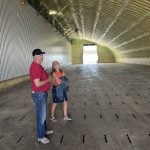Rock Nelson is a fifth generation South Dakotan — and South Dakota is a few thousand kilometres from Winnipeg, Manitoba and in a different country — but he is an admirer of the entrepreneurial spirit that drives the province, which he thinks is embodied by the World Trade Centre Winnipeg.
That may be because his state and the province have so much in common, having built strong, diversified economies despite being distant from major consumer markets, having harsh climates and relatively small populations.
Nelson, director of the South Dakota International Trade Center, has developed such strong links with his Manitoba counterparts that he has taken large delegations from the state to the two Centrallia business-to-business events that have been held in Winnipeg since 2010, with plans to attend the third this May 25-27.
Read Also

China seeks improved ties with Canada amid rising trade tensions
China called on Friday for steps to improve bilateral ties with Canada, saying there were no deep-seated conflicts of interest, following a spike in trade tensions with many of Beijing’s Western trade partners this year.
“They’re good people,” said Nelson of his Winnipeg counterparts. “When they put on a show or event it’s done right. I wouldn’t expose my clients to it if it wasn’t.”
Described as a “speed-dating opportunity” for small and medium-sized businesses, it’s the fourth such event held in Winnipeg and is expected to attract 700 participants from throughout Canada and 30 countries to the RBC Convention Centre Winnipeg, where they can tap new opportunities in domestic and international markets.
Nelson, who has held his position for 17 years and is widely respected in economic development circles, holds several economic development credentials and is an unabashed promoter of his home state. He sees Centrallia as a key event to advance the interests of South Dakota businesses.
“The benefit is that all the participants are somewhat vetted ahead of time,” he said. “I can get on a plane and go to France or Finland (to promote South Dakotan businesses), but I can do that at Centrallia (and at a much lower cost) and it’s all under one roof.”
He has taken delegations of about 12 to 14 business leaders from the state to the event every year, most of whom were pleased with the results. He became such a booster of the event his state now has a booth, where attendees can learn all about his state’s economic advantages.
And despite a relatively small population of 858,000, ranking it as the 46th most sparsely populated in the U.S., and being far from major population centres, it has managed to turn itself into one of the most economically stable states in the nation.
In that regard, it has a great deal in common with Manitoba, a province with 1.28 million people, located far from major Canadian cities like Toronto, Vancouver, Montreal and Calgary.
Although Winnipeg, with a population of 793,000, is larger than Sioux Falls, with a population of 165,000, the state and province have a good deal in common.
Both have economies that are historically based on a strong agricultural sector, for one, Nelson points out.
And there’s the isolation factor, which he said both have overcome, thanks to a focus on international trade, a strong entrepreneurial spirit and a great work ethic.
Those attributes have allowed South Dakota to take the lead as a regional promoter of economic development.
As head of the South Dakota International Trade Center, Nelson represents a much larger geographical footprint, which includes part of Minnesota, northwest Iowa and northeastern Nebraska.
“When a client has issues about importing (products or services) or has exporting issues they come to see us,” he said. “My services are provided for free.”
With funding from the U.S. Small Business Administration, the U.S. Small Business Development Centers, from the Sioux Falls Area Chamber of Commerce, Sioux Falls Development Foundation and the South Dakota Governor’s Office of Economic Development, it is one of the most active promoters of economic development among the U.S. Plains states.
“I do international trade seminars and workshops, bring in experts on international trade and carry out other functions,” including helping individual businesses seek out other markets, Nelson said.
While agriculture is the state’s economic mainstay (it is the leading producer in the U.S. of oats, barley, rye, flaxseed and alfalfa), it no longer leads the state in employment or share of gross state product. Manufacturing is now the economic driver, along with the service sector. Tourism is also a major part of its economy, with world-famed Mount Rushmore, the Black Hills and the Badlands drawing millions of visitors to the state each year.
However, Nelson said there was a time when the state’s economy became over-reliant on one employer and one facility, a large pork processing plant operated by Smithfield Foods.
“It employs 3200 people,” he said. “When the workers would go on strike (or production is curtailed for some other reason) it had a direct impact on our economy.”
That doesn’t mean South Dakotans don’t value Smithfield’s presence; they just want more economic players.
And that is what has happened.
Several years ago financial giant Citibank established a call centre in Sioux Falls that now employs over 2,000; the city became a regional health services focal point, with hospitals and other facilities employing 10,000; and the state’s manufacturing capacity grew dramatically.
Some are based on its roots in agriculture. For instance, there are firms that manufacture and export combining equipment and there’s a cheese plant and many large ethanol plants, as well as a company that manufactures grain bins.
But there are others that emerged as a result of the state’s entrepreneurial spirit; including a trophy manufacturing plant and a manufacturer and marketer of pet products, a plant that manufactures equipment for trucks and others that manufacture mining equipment.
“South Dakotans have a strong work ethic, which has led to this entrepreneurial spirit,” said Nelson. “In fact, we’re actually hurting for employees, with an unemployment rate of 2.3 per cent (one of the lowest in the U.S.).”
But with world-class cultural facilities and recreation facilities, including a performing arts centre that has attracted the likes of noted cellist Yo-Yo Ma and a new 12,500-seat arena that hosted the Eagles, he said there are so many diversions that the relatively cold winters are not a large factor in everyday life.
“We continue to stress our good quality of life,” he said.
The state also has three universities, which makes state residents some of the best educated in the U.S.
In that respect, much like Winnipeg, with the likes of the Royal Winnipeg Ballet, a world-class symphony orchestra and top notch universities and colleges, it shares a great deal in common as well.
But those similarities aside, Nelson is all business when it comes to his strong support for Centrallia.
“If I didn’t believe in it I wouldn’t be going for a third time and I wouldn’t have my clients attending,” he said.
— Content is provided by Glacier FarmMedia, a Centrallia sponsor.
















